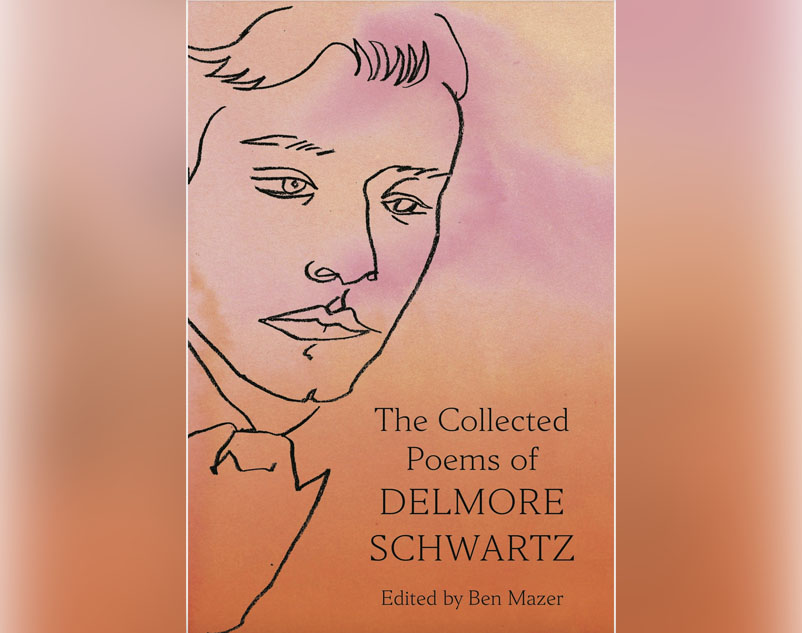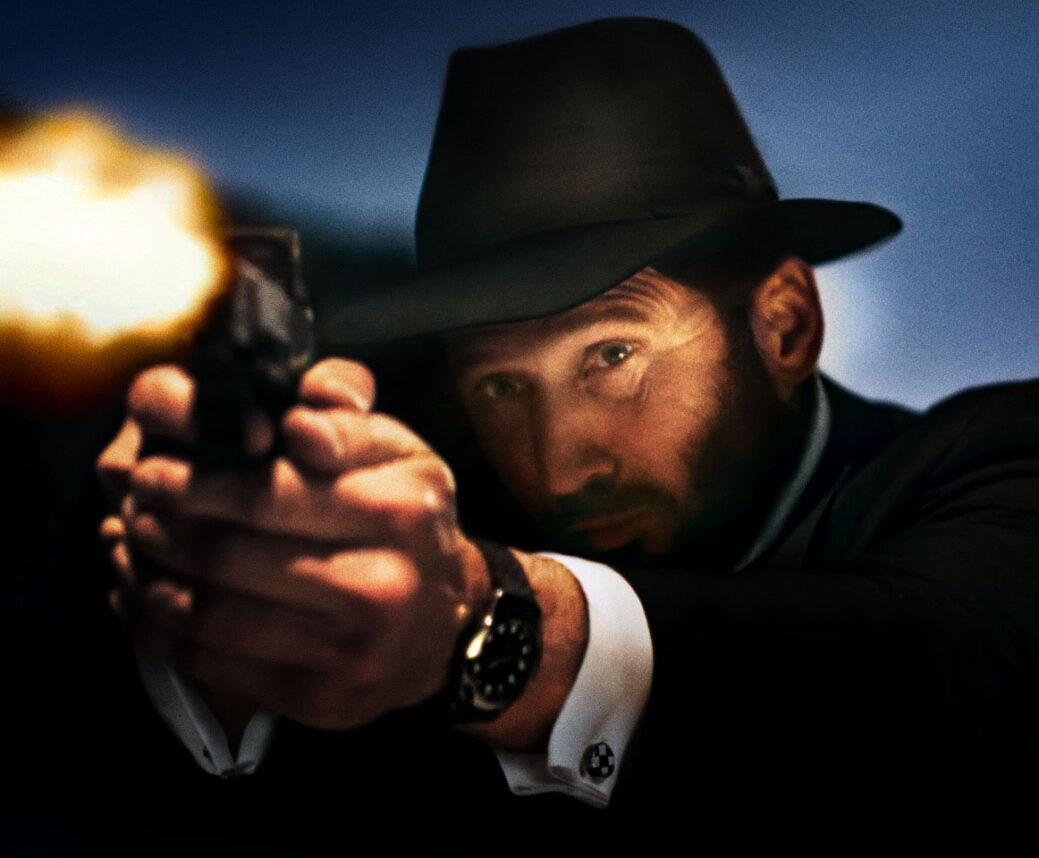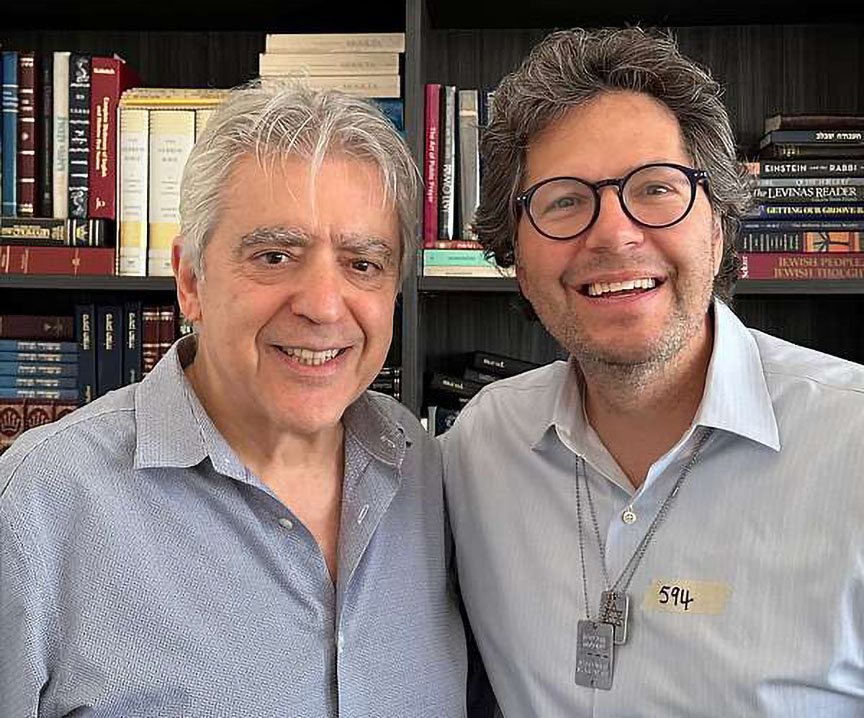
I’ll admit I came to “The Collected Poems of Delmore Schwartz” (Farrar, Strauss and Giroux, $50) with some trepidation. James Atlas’ masterful biography “Delmore Schwartz: The Life of an American Poet” was literary catnip to at least one young Jewish writer. I quickly devoured everything I could find by Schwartz. Reading him helped me understand my father, the son of Russian immigrants who grew up in the Bronx. To my undergraduate mind, Schwartz was not just underrated, but the greatest Jewish American poet of the first half of the 20th century. (The greatest Jewish American poet of the latter half? Allen Ginsberg … and Bob Dylan.)
And therein lies the problem. I haven’t read Schwartz much since college; rereading books I loved in my 20s carries with it the risk that they might not resonate with the older Steven Mirkin. I can’t look at a copy of Thomas Wolfe’s “Look Homeward, Angel” these days without cringing. (In the other direction, I find my appreciation of Isaac Bashevis Singer grows with every year I add on to my age. My distaste for Saul Bellow has remained unchanged.)
In Schwartz’ case, the verdict is a little more complex. I’m still moved by his first book, “In Dreams Begin Responsibilities,” published in 1937, when Schwartz was only 25. It contains his two most anthologized poems, “The Heavy Bear” and “In the Naked Bed, in Plato’s Cave,” but is wonderful from start to finish. In the language — abstract, musical, referencing culture both high and low, and written with ambitions to high modernism — you can echoes of the voices of his parents (and my grandparents) — Eastern European American Jews. “The Ballad of the Children of the Czar’s” sing-song rhythms, simple diction and two line stanzas can seem almost simple. But they grow darker, from “The children of the Czar/Played with a bouncing ball//In the May morning, in the Czar’s garden,/Tossing it back and forth” to “I am my father’s father/You are your children’s guilt.//In history’s pity and terror/The child is Aeneas again.”
The book was a success, and made him a literary star, garnering praise from, among others, Alfred Kazin, T.S. Eliot and Ezra Pound (the latter two not known for having much good to say about Jews). In addition to his poetry and short stories, he was a respected literary critic and a popular lecturer. Known to be a great conversationalist, he was an in-demand dinner party guest at the center of a group of New York intellectuals, many of them associated with The Partisan Review (where he was the first poetry editor), and many of them Jewish.
Schwartz’ first book was a success and made him a literary star, garnering praise from, among others, Alfred Kazin, T.S. Eliot and Ezra Pound (the latter two not known for having much good to say about Jews).
He was never to repeat that success. His translation of Rimbaud’s “A Season in Hell,” was widely panned, as was his next, the first book in what he considered his magnum opus, “Genesis.” It’s here where his work (and life) turn south.
“Genesis” is one of those poems that is more attractive in concept than in execution. An autobiographical bildungsroman told by Hershey Green (like Schwartz’ other autobiographical stand-ins, given names that resemble their creator’s: Half Yiddishkeit, half Yankee Doodle) in blank verse, interrupted by a group of spirits who comment on Hershey’s story. The problem is that the spirits quickly turn boring, more the couple next to you talking throughout the movie than their intended Greek chorus. Hershey’s story is one known to many Jewish families: An arduous trip across the ocean, money problems between prosperous and penurious brothers, the birth of children, troubled marriages. It climaxes when the seven-year-old Hershey — like Schwartz — is dragged by his mother to a restaurant where she confronts her husband and his mistress.
After the book’s poor reception, Schwartz’ mental state deteriorated. Stuck in a bad marriage himself, he started abusing alcohol and drugs. He would get teaching jobs and lose them, blaming his problems on other writers. (A man with a mordant sense of humor, Schwartz coined the phrase “even paranoids have real enemies.”) He was prone to violence, which led to his being committed (at the urging of Saul Bellow) to New York’s Bellevue Mental Hospital.
The main discovery in “The Collected Poems” are excerpts from the unfinished second book of “Genesis.” Sadly, they feel like the work of someone who lost any control of the material. Some feel closer to diary jottings than poems. There are paeans to Charles Lindbergh undercut by “’I hardly paid attention to the flight,’/Said Hershey Green, ‘much more engaged in what/The Giants are doing. But thanks,/thanks anyway.’”
The 100 pages of previously uncollected and unpublished poems are a similarly mixed bag. “The Sad Druggist,” contains lines as fine as anything he wrote: “What a comfort clothes are! like love and sleep/They charge with poise and they hide the self/From its pitying interest and its darting glances.” While the first lines of “Stopping Dead from the Neck Up”: “Whose booze is this, I ought to think I know./I bought it several weeks ago,” do not inspire confidence in what follows.
Until the end, Schwartz retained his charm and charisma and as a teacher could still inspire a class. One of his students in the early 1960s was Lou Reed, another nice Jewish boy who spent the rest of his life trying to live up to his early success, who dedicated two songs to Schwartz: “European Son (to Delmore Schwartz),” by The Velvet Underground, an amped-up freak out that Reed later claimed he dedicated to Schwartz because it had the fewest lyrics, “and Delmore hated rock lyrics,” and “My House,” from arguably his best solo album, 1981’s “The Blue Mask,” a lovely, meditative paean to Schwartz, whose “proud and regal name Delmore” announced itself on a Ouija board.
Schwartz died on July 11, 1966, suffering a heart attack in the Times Square flop house where he rented a room. His body was unclaimed for two days. “There were no readers of modern poetry at the morgue,” Bellow writes of Von Humboldt Fleisher, the title character of “Humboldt’s Gift,” whose fictional life closely followed Schwartz’ actual one. Even before his actual death, Schwartz’ star had dimmed. In “City Poet,” Brad Gooch’s biography of Frank O’Hara, Schwartz is mocked by O’Hara — on a panel of “New Poets” in 1952 — as a “clown.”
While not the wholesale restoration of Schwartz’ reputation is wants to be, “The Collected Poems of Delmore Schwartz” is a fascinating volume; a poet’s life in full. But readers new to Schwartz might be better advised to seek out “In Dreams Begin Responsibilities” and move onto this once their interest is whetted. Anything that gets readers to discover Schwartz is a good thing.























 More news and opinions than at a Shabbat dinner, right in your inbox.
More news and opinions than at a Shabbat dinner, right in your inbox.